CABI’s PlantwisePlus programme is delivering digital advisory tools that boost sustainable agriculture. In this blog, Laura Hollis and Malvika Chaudhary discuss how the programme is working to improve the capacity of public and private actors who are supporting smallholder farmers in Bangladesh to diagnose crop health problems and recommend sustainable solutions.
CONTEXT
Nearly two-thirds of Bangladesh’s population work in agriculture, with 80% depending on it for their livelihood. However, pests have a devastating effect on smallholder yields. In Bangladesh, 25% of all crops are lost to pests. Climate change – which Bangladeshi farmers are particularly vulnerable to – is worsening plant health threats. Climate shocks, such as erratic rainfall, temperature extremes and drought, increase the risk posed by crop pests and diseases causing problems to flare up without warning. Lacking proper pest monitoring and prediction mechanisms, outbreaks can catch farmers unawares. Effective, sustainable solutions require both knowledge and resources.
Access to reliable information on sustainable best practices in agriculture is still limited, and as a result, farmers often resort to chemical pesticides. An estimated 49,000 tonnes of pesticides are used in Bangladesh each year. The indiscriminate use of highly toxic plant protection products is affecting human, livestock and environmental health as well as product efficacy. This, in turn, decreases the resilience of agricultural systems to shocks, such as new pest invasions.
PLANTWISE
The Plantwise programme (Box 1) plays a significant role in supporting smallholder agriculture and provides farmers with information on the use of more sustainable farming methods. However, the number of professionally trained advisors is insufficient, and farmers often turn to agro-input dealers and others in their community for plant health advice.
|
Box 1: Plantwise |
Over the next 10 years, PlantwisePlus is seeking to address these challenges and enable countries to confidently face plant health threats in a changing climate. Through a digitally-enabled approach the programme is helping countries predict, prevent and prepare for plant health threats thereby reducing crop losses and producing more and safer food.
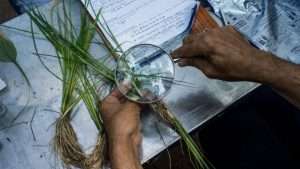
DIGITAL APPROACH TO PLANT HEALTH
CABI Academy is one of the new digital tools developed through the PlantwisePlus programme to address plant health challenges. The digital learning platform provides a range of courses to support extension workers. The courses include interactive exercises and other resources to help participants grow their knowledge, so they can deliver the best possible advice to farmers.
The materials work equally well for self-study, as they provide all the information and context required. There are currently two interactive courses available for free in Bangladesh – Crop Pest Diagnosis and Crop Pest Management. Together, they provide a comprehensive methodology to diagnose and proactively control pests and diseases.

Another tool helping to tackle threats to plant health is CABI’s BioProtection Portal. Now available to users in Bangladesh, this ground-breaking online bio protection resource helps growers and pest management advisors identify, source, and correctly apply biocontrol and biopesticide products for their specific crop-pest problems.
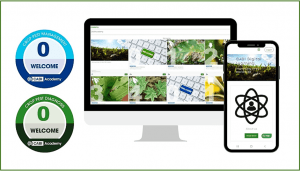 The portal, which is predicted to become the go-to resource for identifying and sourcing biocontrol and biopesticide products, is particularly beneficial for growers in Bangladesh looking to replace chemical pesticides with biological products to meet market or export standards, satisfy consumer demands for healthier and safer food, and reduce pressure on the environment.
The portal, which is predicted to become the go-to resource for identifying and sourcing biocontrol and biopesticide products, is particularly beneficial for growers in Bangladesh looking to replace chemical pesticides with biological products to meet market or export standards, satisfy consumer demands for healthier and safer food, and reduce pressure on the environment.
Detecting and responding to pest threats is one of the key areas of PlantwisePlus. The programme is working hard to create effective pest monitoring systems so that farmers can stay one step ahead of potential crop threats. This builds on the work of the Plantwise programme.
Through the Plantwise programme, CABI has been working with CGIAR to support national crop monitoring. Set up at the onset of the pandemic, the CGIAR COVID-19 Hub provides a coordinated research response to the global pandemic, health and food systems worldwide, as well as supporting Sustainable Development Goals. The Hub focuses on supporting national response and recovery work across CGIAR research themes, harnessing knowledge for emergency response, recovery, and resilience.
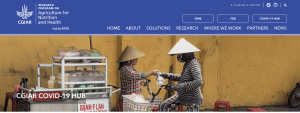
Plantwise has been identified as a national crop health monitor and will be integrated into the platform along with other monitoring systems, such as fisheries, livestock and even human health. The Hub will support the Bangladesh Government’s initiatives to promote homestead cropping. Under this project, different activities are being implemented across a number of Bangladesh districts in coordination with DAE-CIMMYT-CABI to strengthen crop pest management.
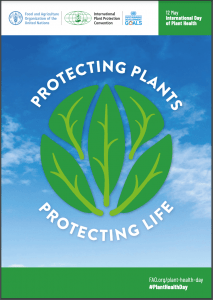 Through PlantwisePlus, CABI is building on its scientific and publishing background to create digital tools that can strengthen the agricultural advice given to farmers in Bangladesh. With the right knowledge pests can be identified earlier, their spread controlled, and the best treatments recommended so as to prevent significant yield damage.
Through PlantwisePlus, CABI is building on its scientific and publishing background to create digital tools that can strengthen the agricultural advice given to farmers in Bangladesh. With the right knowledge pests can be identified earlier, their spread controlled, and the best treatments recommended so as to prevent significant yield damage.
Tools, such as CABI Academy, BioProtection Portal and CGIAR Covid-19 Hub can strengthen advisory services by making this knowledge accessible to those who need it most.
The United Nations designated 12 May the International Day of Plant Health (IDPH) to raise global awareness on how protecting plant health can help end hunger, reduce poverty, protect biodiversity and the environment, and boost economic development. This Day is a key legacy of the International Year of Plant Health 2020.
Find out more about CABI’s new global PlantwisePlus Programme
CABI gratefully acknowledges the financial support of the Directorate General for International Cooperation (DGIS, Netherlands), the European Commission Directorate General for International Partnerships (INTPA, EU), the UK Foreign, Commonwealth & Development Office (FCDO), the Swiss Agency for Development and Cooperation (SDC), for the PlantwisePlus programme.

Laura Hollis is Digital Content Manager, CABI, (L.Hollis@cabi.org)

Malvika Chaudhary is Plantwise Regional Coordinator, Asia, (M.Chaudhary@cabi.org)

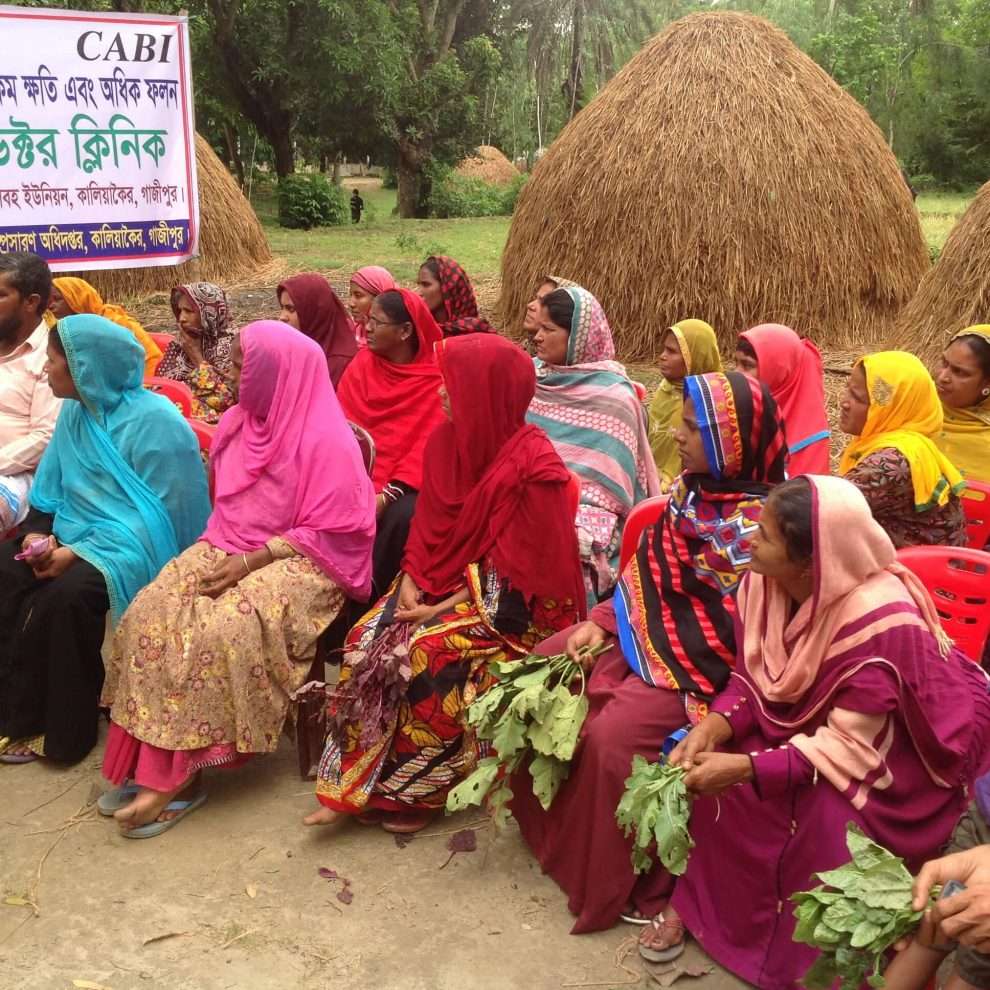
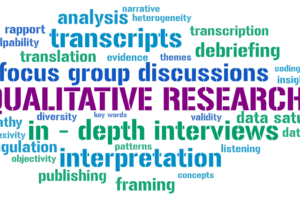
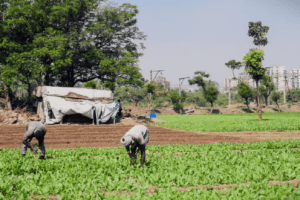

Add Comment